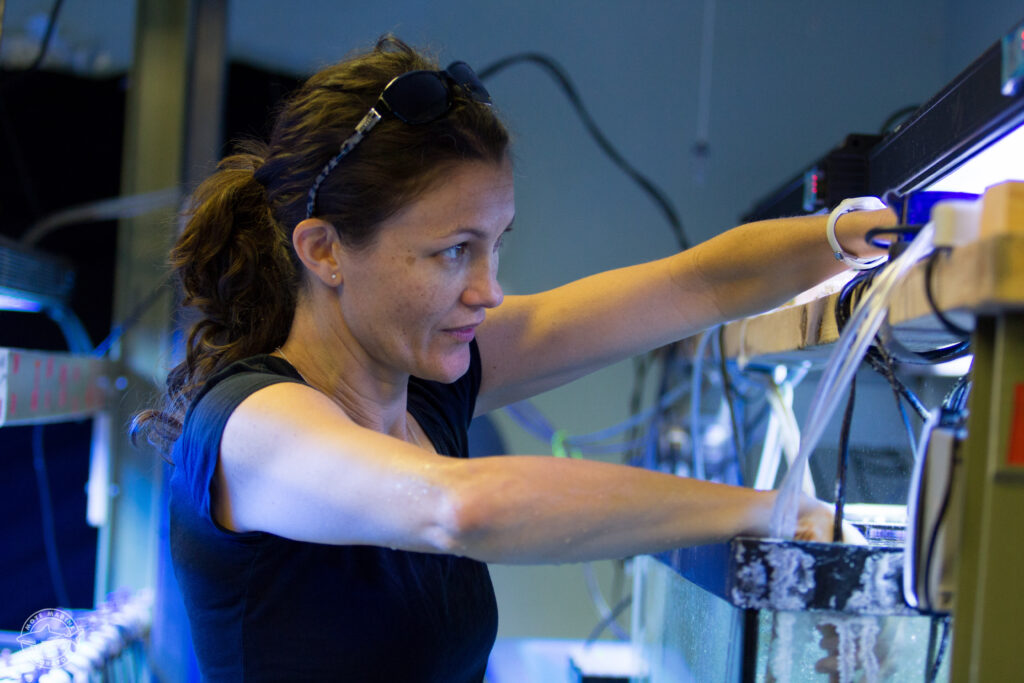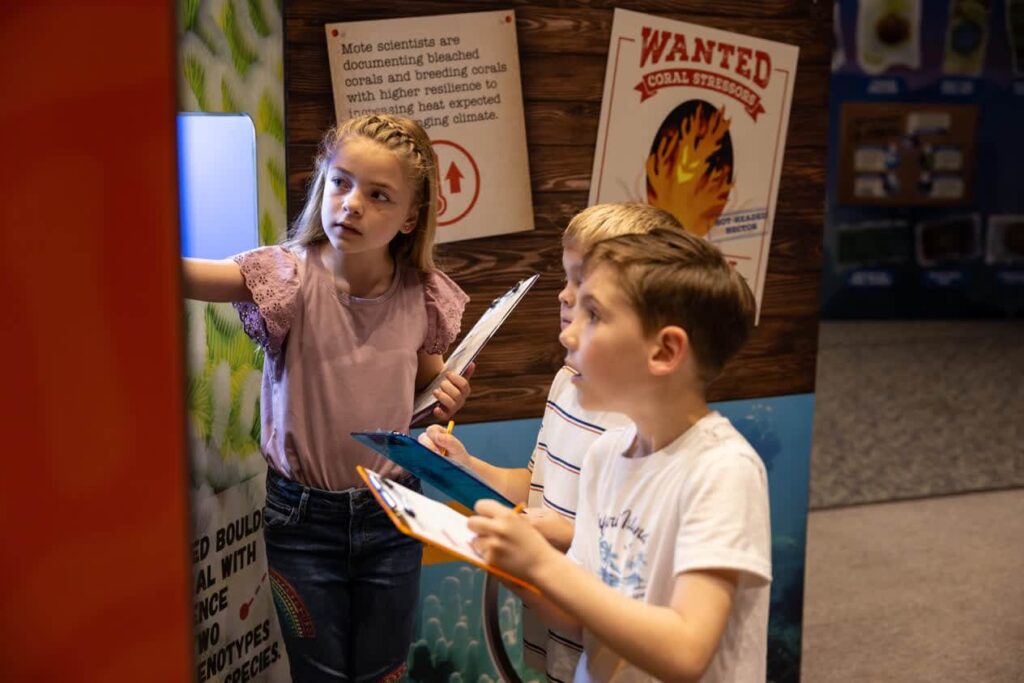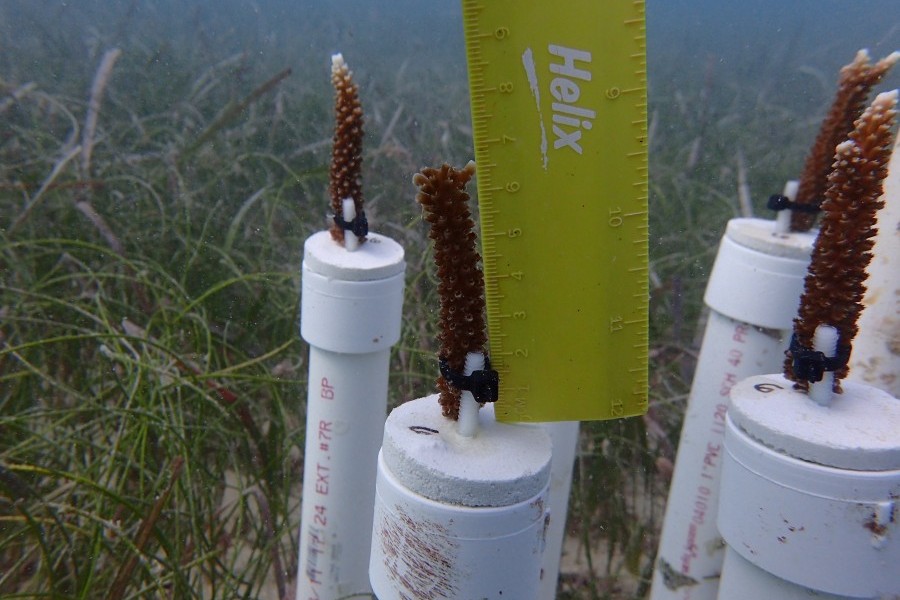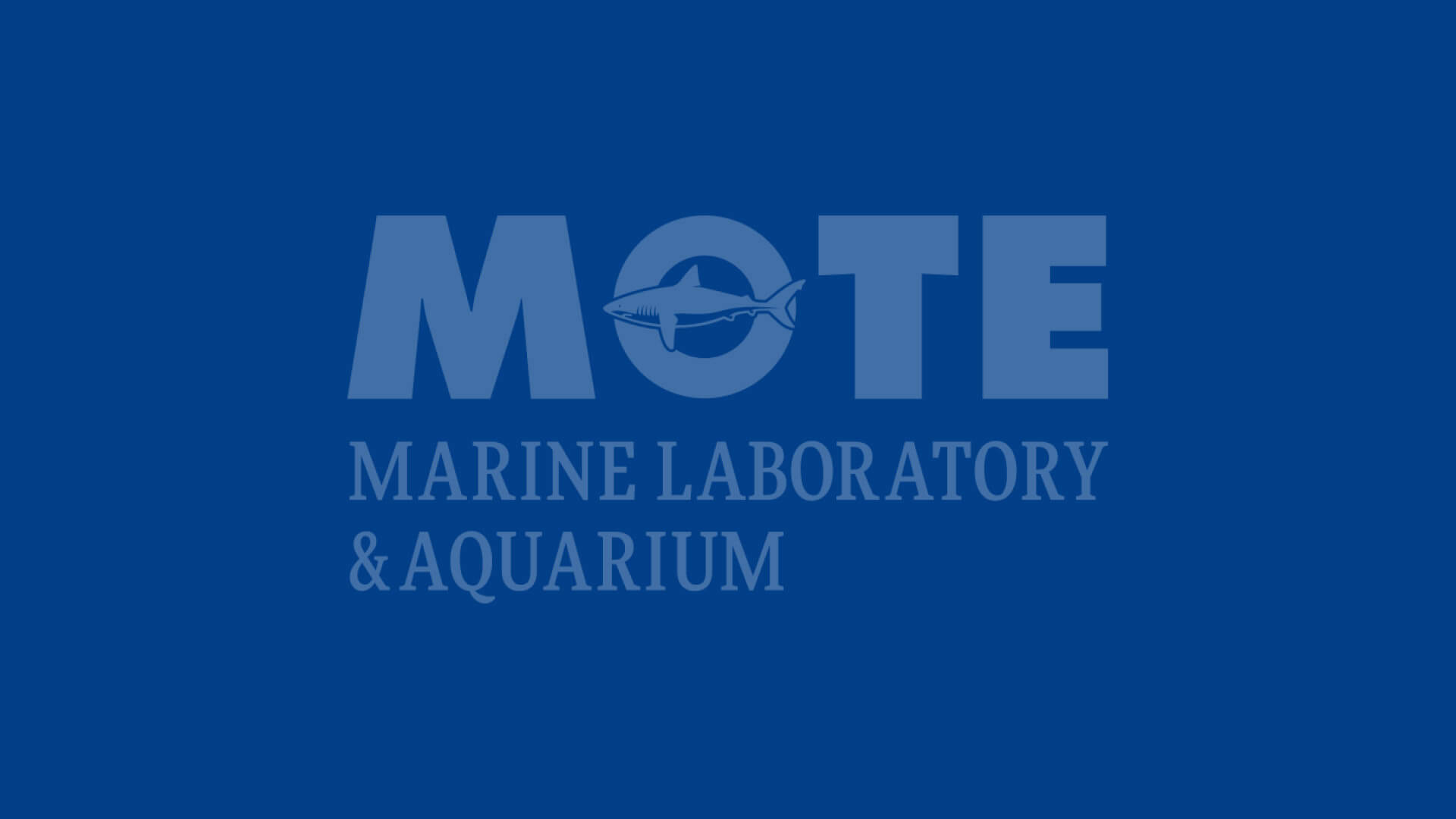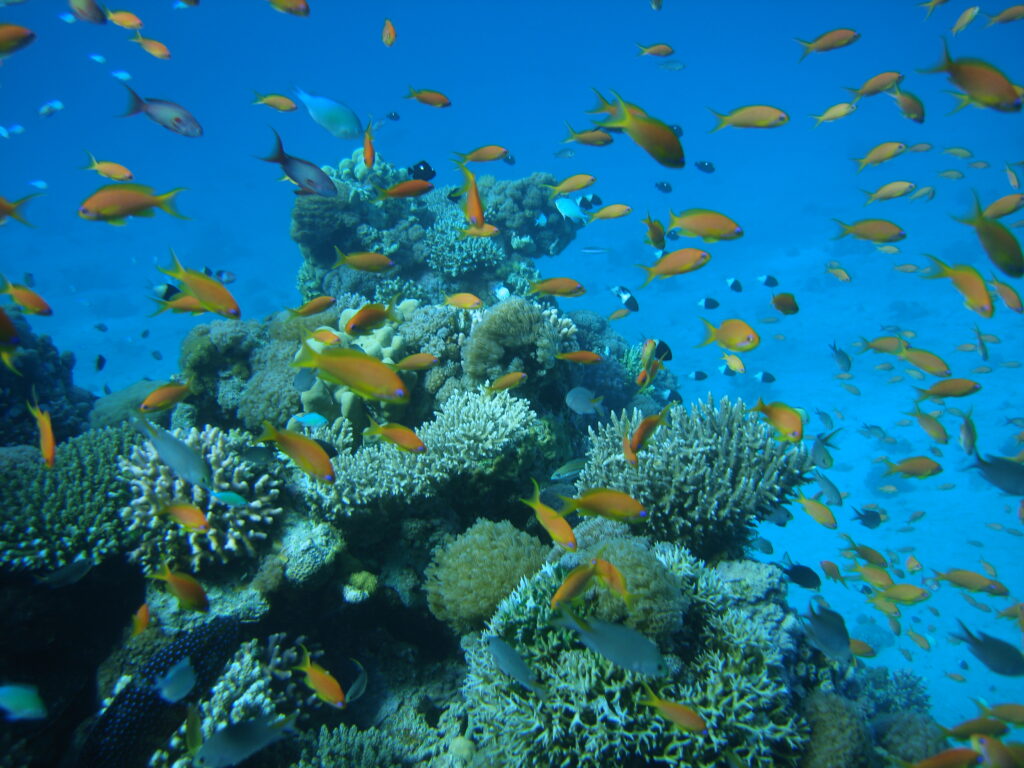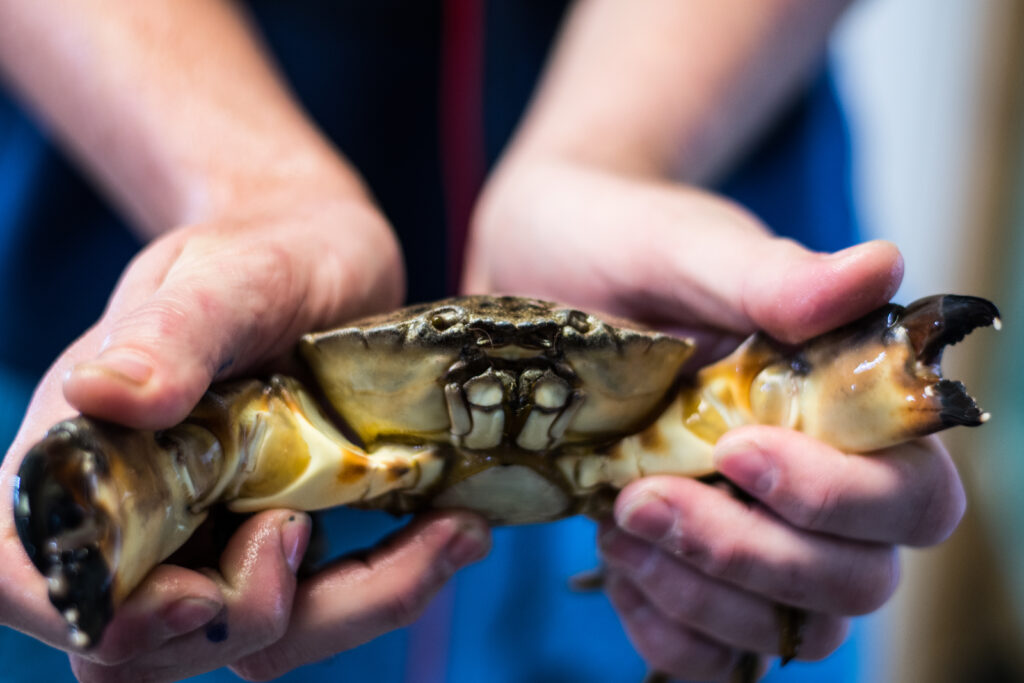Skip to content
You are using an outdated browser. Please upgrade your browser to improve your experience.
Increased guest traffic is expected this time of year. For guaranteed entry, we recommend purchasing your aquarium tickets online in advance.
Tag Results
Ocean acidification
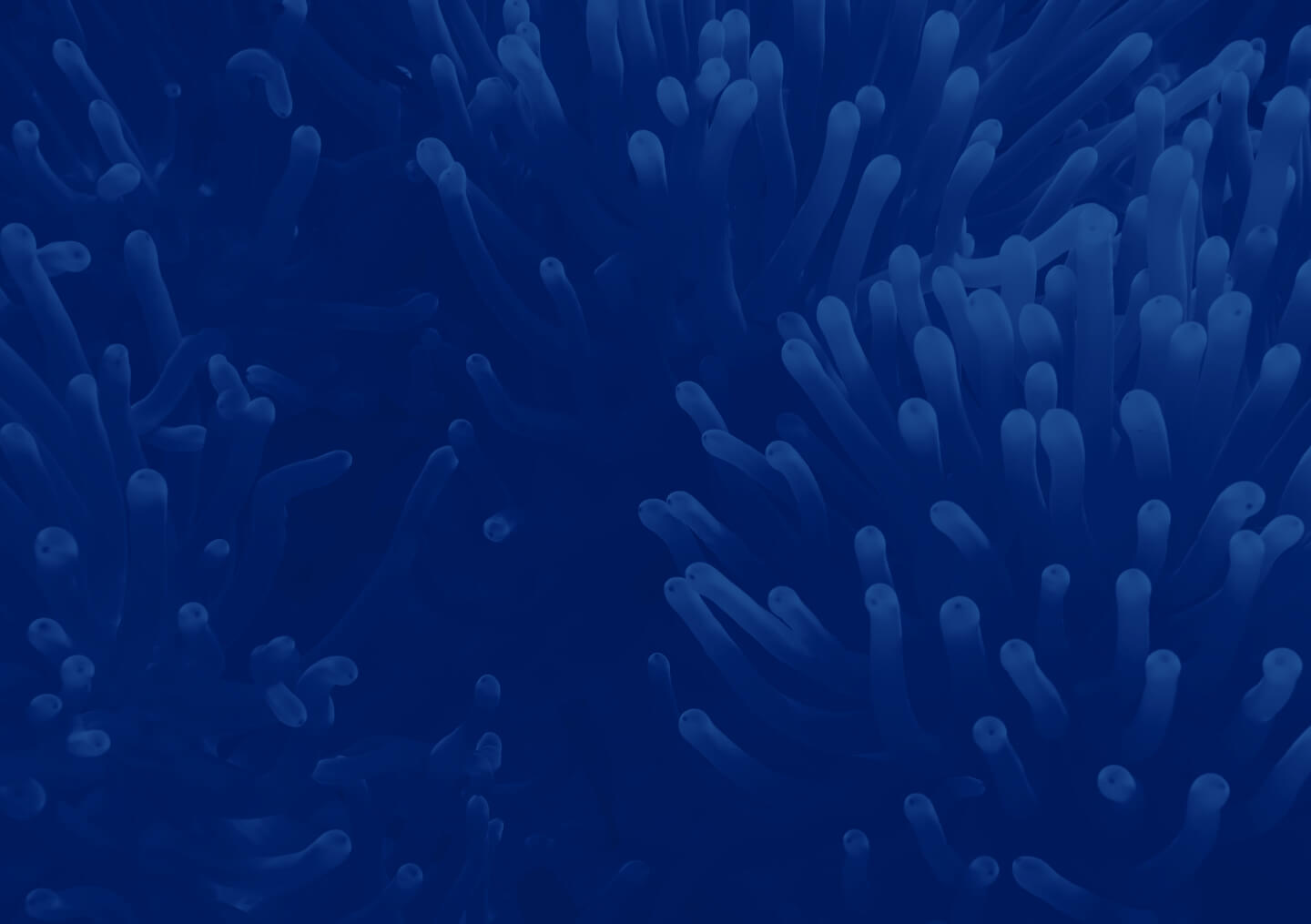
A pioneering study led by Mote Marine Laboratory, in collaboration with the Florida Fish and Wildlife Conservation Commission-Fish and Wildlife Research Institute (FWC-FWRI) and the U.S. Geological Survey (USGS), has uncovered a potential critical link between harmful algal blooms (HABs) and acidification...
Mote Marine Laboratory, in a project funded by the Southeast Coastal Ocean Observing Regional Association (SECOORA), successfully deployed a SeapHOx sensor, an instrument that monitors pH and dissolved oxygen (parameters measured for evaluation of ocean and coastal acidification), at Looe Key in the...
On Saturday, March 3, Mote Marine Laboratory & Aquarium unveiled a captivating new exhibit titled Mystery Reef. Included in regular admission, the exhibit explores the threats facing Florida’s coral reefs. Through activities such as a scavenger hunt, puzzle blocks, and an air maze, guests will...
June 8, 2020 – At a press conference earlier today in Islamorada, Mote Marine Laboratory & Aquarium announced plans for future development to further coral reef research and restoration in the Florida Keys and in Sarasota. This announcement, made on World Oceans Day, is in direct response to the...
Mote Marine Laboratory research in 2018 strengthened the concept that seagrasses could help protect nearby coral reefs from ocean acidification (OA), a chemistry shift occurring as part of global climate change.
The research, led by Mote Ocean Acidification Program Manager Dr. Emily Hall and in prep...
Mote Postdoctoral Research Fellow Dr. Heather Page and colleagues advanced research on ocean acidification impacts to multiple species and their interactions in 2018. Coral reef ecosystem health has been declining worldwide, and ocean acidification (OA) — decreasing seawater pH owing to human-contributed...
This year, Mote Marine Laboratory staff rebuilt and enhanced their ocean acidification research system in the Florida Keys to double its capacity and incorporate finer-scale controls of experimental conditions, after Hurricane Irma destroyed the previous OA system in September 2017. This year’s improvements...
On Nov. 18, 2018, Mote Marine Laboratory scientists and colleagues dove deep into an offshore “blue hole” in the Gulf of Mexico, launching a new round of exploration and research into these underwater caves, springs and sinkholes whose scientific investigation has been pioneered by Mote. On Nov....
Ocean acidification (OA) is hard to describe. Many do not realize it's even there, but why would they? It doesn’t have a taste or smell. Despite its mysterious nature, OA is impacting the ocean at an exponential rate. Scientists around the world are studying its effects, but Mote Marine Laboratory...
The first study on Florida stone crabs and ocean acidification was published this month by a Mote Marine Laboratory scientist and offers clues for relieving environmental stress on these tasty and economically valuable crabs.
The study in the peer-reviewed Journal of Experimental Marine Biology and...


